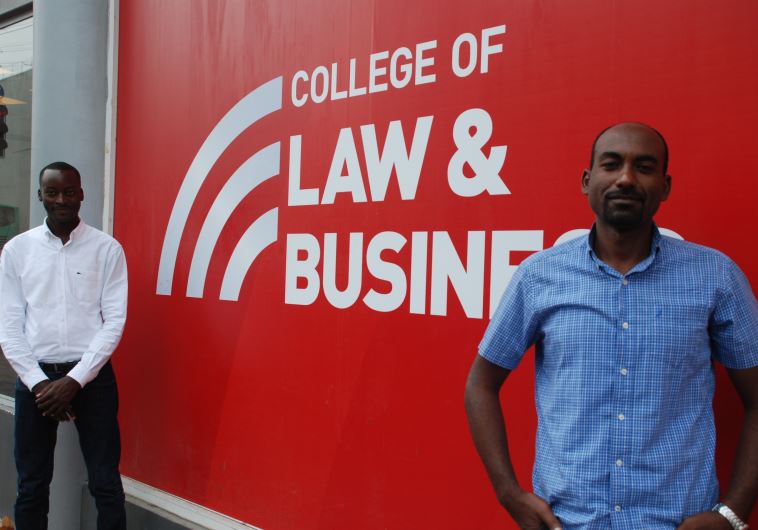African migrants start law school studies at Ramat Gan
One migrant is in a night program which will allow him to continue working as a court translator in Tel Aviv.
 Mutasim Ali, 28 of Sudan, and court translator Suleiman Masgana, 37 of EritreaUpdated:
Mutasim Ali, 28 of Sudan, and court translator Suleiman Masgana, 37 of EritreaUpdated: